What are Vitamins, and why are they important for our health? Vitamins are tiny substances found in food that help our bodies grow and stay healthy. They play a key role in many functions, like boosting our immune system and keeping our body healthy. There are two main types of vitamins: Fat Soluble and Water Soluble Vitamins.
Fat-soluble vitamins, like Vitamin A, D, E, and K, are stored in our body’s fate and used when needed. Water soluble vitamins, like vitamins C and B vitamins, dissolve in water and need to be taken regularly because they are not stored in the body. Eating a balanced diet rich in fruits, vegetables, and whole grains ensures we get enough vitamins to stay healthy.
What are Fat Soluble Vitamins?
Fat-soluble vitamins are nutrients that dissolve in fats and oils. They are stored in the body’s fatty tissues and liver, which means we don’t need to consume them every day. These vitamins are essential for many body functions like keeping our skin healthy and helping our eyes see well. There are four main fat-soluble vitamins: A, D, E, and K. Vitamin A is important for vision, vitamin D helps with bone health, vitamin E protects cells from damage, and vitamin K helps with blood clotting. Because they stay in the body longer, taking too much can be harmful.

What are Water Soluble Vitamins?
Water-soluble vitamins are nutrients that dissolve in water and are not stored in the body for long. This means we need to consume them regularly through food or supplements. These vitamins are important for energy, growth, and overall health. Any extra amounts are removed from the body through urine, so they are less likely to build up and cause harm. The main water-soluble vitamins are the B vitamins (like B1, B2, B6, and B12) and vitamin C. B vitamins help the body use energy from food, and vitamin C is important for skin and immune health.
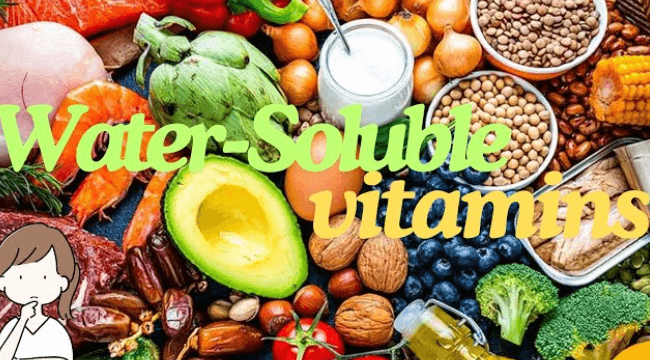
Difference Between Fat Soluble and Water Soluble Vitamins
The main difference between fat-soluble and water-soluble vitamins is how they are stored and absorbed. Fat-soluble vitamins (A, D, E, K) dissolve in fat and can be stored in the body for later use. Water-soluble vitamins (B-complex, C) dissolve in water and are not stored; they leave the body through urine, so they need to be consumed more frequently. Other differences between Fat-soluble and water-soluble vitamins have been tabulated below.
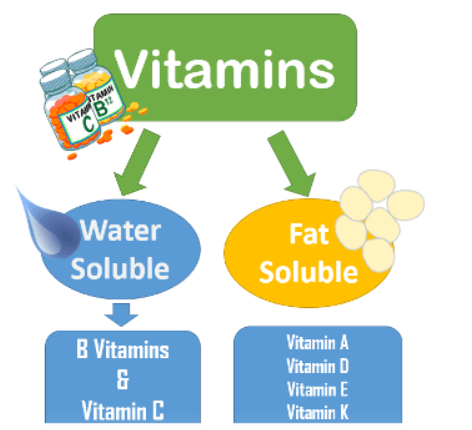
| Difference Between Fat Soluble and Water Soluble Vitamins | ||
| Aspects | Fat Soluble Vitamins | Water Soluble Vitamins |
| Solubility | These vitamins dissolve in fats and oils. | Dissolves in water. |
| Storage in Body | Stored in liver and fatty tissues. | Not stored, access is excreted in the urine. |
| Daily Requirement | Not needed daily due to storage. | Needed regularly because they are not stored. |
| Main Vitamins | Vitamin A, D, E, and K | B- Complex Vitamins [B1, B2, B6, B12] and C. |
| Absorption | Absorbed with dietary fats. | Absorbed directly into the bloodstream. |
| Risk of Toxicity | Higher risk if consumed in excess. | Lower risk due to regular excretion. |
| Functions | Vision, bone health, antioxidants, clotting. | Energy metabolism, immune support, and skin health. |
| Sources | Fat-rich food like dairy, nuts, and fish. | Fruits, vegetables, grains, and meat. |
| Heat stability | More stable in cooking. | Can be destroyed by heat or prolonged cooking. |
| Deficiency Onset | Deficiency develops slowly. | Deficiency can develop quickly. |
Importance of Fat Soluble and Water Soluble Vitamins
Both fat-soluble and water-soluble vitamins are very necessary for our body. Fat-soluble vitamins (A, D, E, and K) are stored in the body and help with vision, bone health, and protecting cells. Water-soluble vitamins (B and C) are not stored, so we need them daily from food. They support energy, nerve health, and the immune system. Both types are essential for good health.
Fat-Soluble Vitamins:
Vitamin A:
- Supports healthy vision and prevents night blindness.
- Essential for immune system function.
- Promotes healthy skin and cell growth.
Vitamin D:
- Helps in calcium absorption, supporting bone health.
- Boosts immune function and reduces inflammation.
- Prevents bone diseases like rickets and osteoporosis.
Vitamin E:
- Acts as a powerful antioxidant, protecting cells from damage.
- Supports immune function and skin health.
- Helps in the formation of red blood cells.
Vitamin K:
- Essential for blood clotting and wound healing.
- Supports bone health by aiding calcium regulation.
- Prevents excessive bleeding.
Water-Soluble Vitamins:
Vitamin C:
- Boosts immune function and protects against infections.
- Acts as an antioxidant, supporting skin health.
- Promotes wound healing and helps in iron absorption.
Vitamin B1 (Thiamine):
- Helps convert food into energy.
- Supports nervous system function and muscle health.
- Prevents diseases like beriberi.
Vitamin B2 (Riboflavin):
- Supports energy production and cellular function.
- Promotes healthy skin, eyes, and nervous system.
- Acts as an antioxidant to protect cells from damage.
Vitamin B3 (Niacin):
- Aids in energy production from food.
- Supports healthy skin and nervous system.
- Lowers cholesterol levels and improves circulation.
Vitamin B12:
- Essential for red blood cell production and preventing anemia.
- Supports brain function and the nervous system.
- Helps in DNA synthesis and cell metabolism.

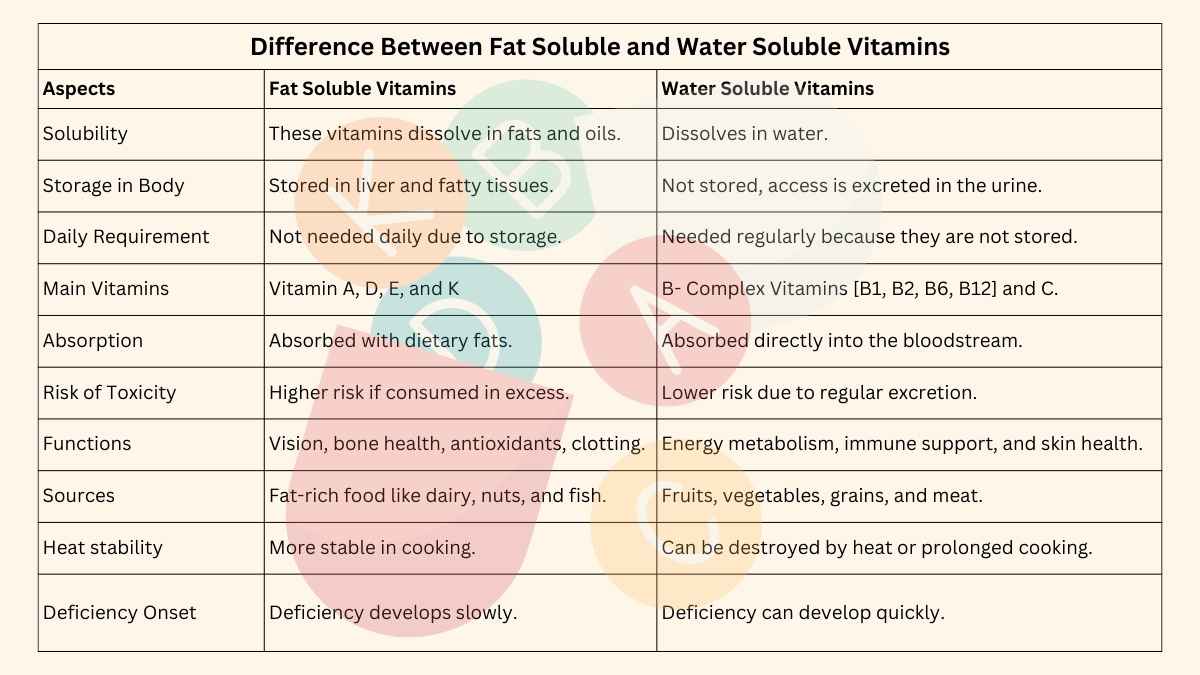

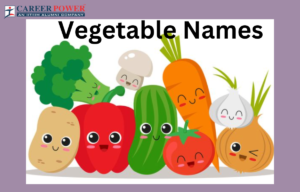 50 Vegetables Name for Kids in English a...
50 Vegetables Name for Kids in English a...
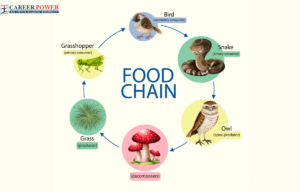 Food Chain: Definition, Types, Examples,...
Food Chain: Definition, Types, Examples,...
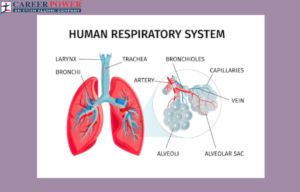 Human Respiratory System: Definition, Di...
Human Respiratory System: Definition, Di...










